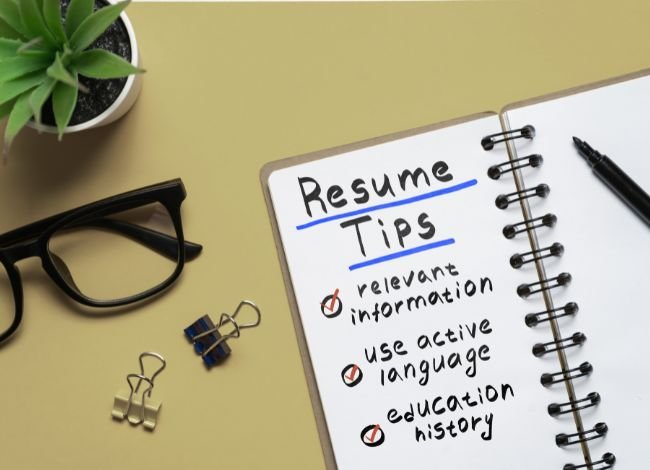Last Updated on October 15, 2025
Your resume is more than just a list of jobs—it’s your personal marketing tool, the first impression you make on recruiters, and often the deciding factor in whether you move forward in the hiring process. Among all the details that go into crafting the perfect resume—such as formatting, keywords, and achievements—resume length is one of the most debated topics.
Some experts argue that resumes should always be a single page, while others believe that two pages—or even more in certain industries—can be perfectly acceptable. The truth lies somewhere in between. The ideal resume length depends on your career stage, the type of job you’re applying for, and the industry standards within that field.
Understanding resume length guidelines is crucial because hiring managers spend very little time reviewing each application. In fact, studies show that recruiters often skim resumes in under 10 seconds. If your resume is too long, it risks being overlooked; if it’s too short, you may not showcase enough of your skills.
This article will break down everything you need to know about resume length. You’ll learn when to keep your resume to a single page, when a longer document is justified, and how to optimize your content so every line adds value. By the end, you’ll have a clear roadmap to ensure your resume is the perfect length for your career goals.
The Best Resume Length is One Page for Most Applicants
For the majority of job seekers, especially those at the early or mid stages of their careers, the best resume length is one page. Recruiters and hiring managers review hundreds of applications for a single role, which means they rarely have the time to study long resumes in detail. A concise one-page document allows them to quickly identify your skills, experience, and potential fit for the position.
A single-page resume also forces you to prioritize the most important details. Instead of listing every task you’ve ever performed, you highlight your strongest accomplishments—such as increasing sales, leading projects, or improving processes. This ensures your resume is results-focused and impactful, rather than cluttered with unnecessary information.
One-page resumes are particularly effective for:
Students and recent graduates – Since you may only have internships, part-time work, or academic projects to list, one page is usually enough to showcase your background.
Early career professionals – With fewer than 10 years of work experience, your achievements can typically be presented in a single page without losing value.
Applicants in competitive fields – Industries like marketing, design, customer service, and administration often prefer brief resumes that get straight to the point.
It’s also worth noting that most applicant tracking systems (ATS) can easily process one-page resumes, reducing the risk of formatting errors or overlooked content.
In short, if you don’t have extensive career history or highly specialized achievements, keeping your resume to one page is the smartest choice. It shows you respect the recruiter’s time and know how to present information in a clear, professional way.
4 Tips for the Perfect Resume Length
Even though most job seekers should aim for a one-page resume, condensing years of education, experience, and skills into a single page can feel overwhelming. The good news is that with the right approach, you can keep your resume concise without losing impact. Here are four practical tips to help you maintain the perfect resume length.

1. Adjust Your Formatting
Formatting plays a crucial role in how much content fits on a page. By making subtle adjustments—like narrowing margins slightly, reducing line spacing, or choosing a professional but compact font—you can save valuable space without making your resume look crowded. However, be careful not to sacrifice readability. Keep font sizes at 10 points or higher, and make sure section headers stand out. A clean, well-structured format is more effective than a cluttered design.
2. Cut Extra Resume Sections
Many applicants fill their resumes with sections that add little to no value. Hobbies, references, or long personal statements often distract from your professional achievements. While personal interests can sometimes add personality, they are rarely necessary unless directly related to the role. Focus on essential sections—Summary, Work Experience, Skills, and Education—and include extras only if they strengthen your application.
3. Be Selective About Which Roles You Include
Your resume is not meant to be a complete career autobiography. Instead, it should be a carefully curated snapshot of your most relevant and recent experience. If you’ve worked in roles that don’t align with your current career goals, either leave them off or summarize them briefly. Employers are far more interested in what you’ve achieved in the last 10–15 years than in early jobs that no longer define your expertise.
4. Use 3–5 Bullet Points for Each Role
A common mistake is writing long job descriptions with endless bullet points. Recruiters rarely read every line, so it’s smarter to focus on 3–5 strong, achievement-based bullet points per role. Highlight the results you delivered, not just your daily tasks. For example, “Led a digital campaign that boosted website traffic by 40%” is far more impactful than “Responsible for social media management.” This approach keeps your resume concise and makes your accomplishments easy to spot.
By following these four tips, you’ll find it much easier to balance detail with brevity, ensuring your resume is both effective and the ideal length.
When to Write More Than One Page
While a single-page resume is ideal for most candidates, there are situations where one page simply isn’t enough. In fact, limiting yourself to one page in these cases could mean underselling your qualifications. The key is to understand when a two-page (or longer) resume is appropriate and how to use the extra space wisely.
You Have Several Years of Relevant Work Experience
If you’ve been working for more than 10–15 years, chances are you’ve held multiple significant positions. In such cases, one page may not provide enough room to highlight your most relevant accomplishments. A two-page resume allows you to present a fuller picture of your career, showing progression, leadership, and specialized expertise. Just make sure every role and detail included adds value to the job you’re targeting.
You’re Writing a Federal Resume
Federal resumes are a special category. Unlike private-sector resumes, which are designed for quick scans, federal resumes are expected to be much more detailed. They often run 3–5 pages or longer and include extensive descriptions of job duties, specialized training, and technical qualifications. If you’re applying for a government position, cutting your resume too short could actually hurt your chances.
You’re an Academic
Academics, researchers, and scientists typically use a curriculum vitae (CV) instead of a standard resume. A CV is usually much longer—sometimes 5–10 pages—because it needs to include publications, research projects, teaching experience, presentations, and grants. In academia, thoroughness matters more than brevity, and a longer CV is often expected.
Key Takeaway
The rule of thumb is simple: if you can’t fit all your most relevant and valuable experience on one page without leaving out critical information, it’s better to go longer. However, even with a two-page or academic resume, avoid filler. Every section should be purposeful, relevant, and clearly tied to your career goals.
Frequently Asked Questions
When it comes to resume length, job seekers often have many doubts. Below are some of the most common questions, along with clear answers to help you make the right choice for your career stage.
Q1: Is a two-page resume bad?
No, a two-page resume is not bad—if you truly need the extra space. Professionals with over a decade of relevant experience often require more room to showcase career achievements, certifications, and leadership roles. The key is to ensure that every word on the second page is relevant and adds value. If page two is filled with filler text or outdated jobs, it may work against you.
Q2: Should I leave out older jobs?
Yes, in most cases. Jobs that are more than 15 years old or unrelated to your current career goals can be shortened or left off entirely. Instead of taking up valuable space, you can include a brief line such as “Additional experience available upon request.” Recruiters care far more about your recent and relevant roles.
Q3: Can I shrink the font size to make my resume fit?
It’s better to edit your content than to shrink the font too much. Fonts smaller than 10 points can make your resume difficult to read. Recruiters may skip over resumes that appear cramped or visually unappealing. Instead, focus on concise phrasing, better formatting, and prioritizing the most important content.
Q4: Do hiring managers really read long resumes?
Most hiring managers skim resumes rather than reading every word. They look for keywords, job titles, and measurable results. If your resume is long but full of relevant, impressive accomplishments, it can still work in your favor. However, if it’s long because of unnecessary details, it will likely be overlooked.
Q5: Should students always stick to one page?
Yes, students, recent graduates, and entry-level applicants should almost always stick to a one-page resume. At this stage, you typically don’t have enough professional experience to justify a longer format. Instead, focus on your education, internships, volunteer work, and transferable skills.
Q6: What about career changers—how long should their resumes be?
Career changers can usually keep resumes to one page by emphasizing transferable skills and relevant experience. If you’ve had a long career in a different field, you don’t need to detail every past role. Instead, tailor your resume so it highlights the skills and achievements that match your new career path.
Q7: Will an ATS reject my resume if it’s two pages?
No, applicant tracking systems (ATS) don’t automatically reject resumes based on length. What matters more is formatting and keywords. A well-structured two-page resume with targeted keywords will perform much better than a cluttered one-page resume that lacks relevant terms.
Conclusion
Your resume is not just a document—it’s your personal marketing tool, designed to present your skills, experience, and value in the clearest possible way. One of the most important aspects of building that tool is getting the length right. A resume that’s too short may undersell your abilities, while one that’s too long risks overwhelming recruiters who only spend seconds scanning applications.
For most applicants, especially students, recent graduates, and early-career professionals, a one-page resume is the gold standard. It keeps your information concise, relevant, and easy to read. However, if you have over a decade of experience, are applying for a federal job, or are working in academia, then a longer resume—or even a multi-page CV—is not only acceptable but often expected.
The key takeaway is this: your resume should be as long as it needs to be, and no longer. Every line should serve a purpose, showcasing your qualifications in a way that aligns with the role you want. Remove unnecessary details, prioritize relevance, and keep formatting clean so that your achievements shine.
By following these resume length guidelines, you’ll create a professional, tailored resume that respects recruiters’ time, passes applicant tracking systems, and most importantly—gets you closer to landing interviews.
Remember, employers don’t reward you for word count. They reward you for clarity, focus, and results.

